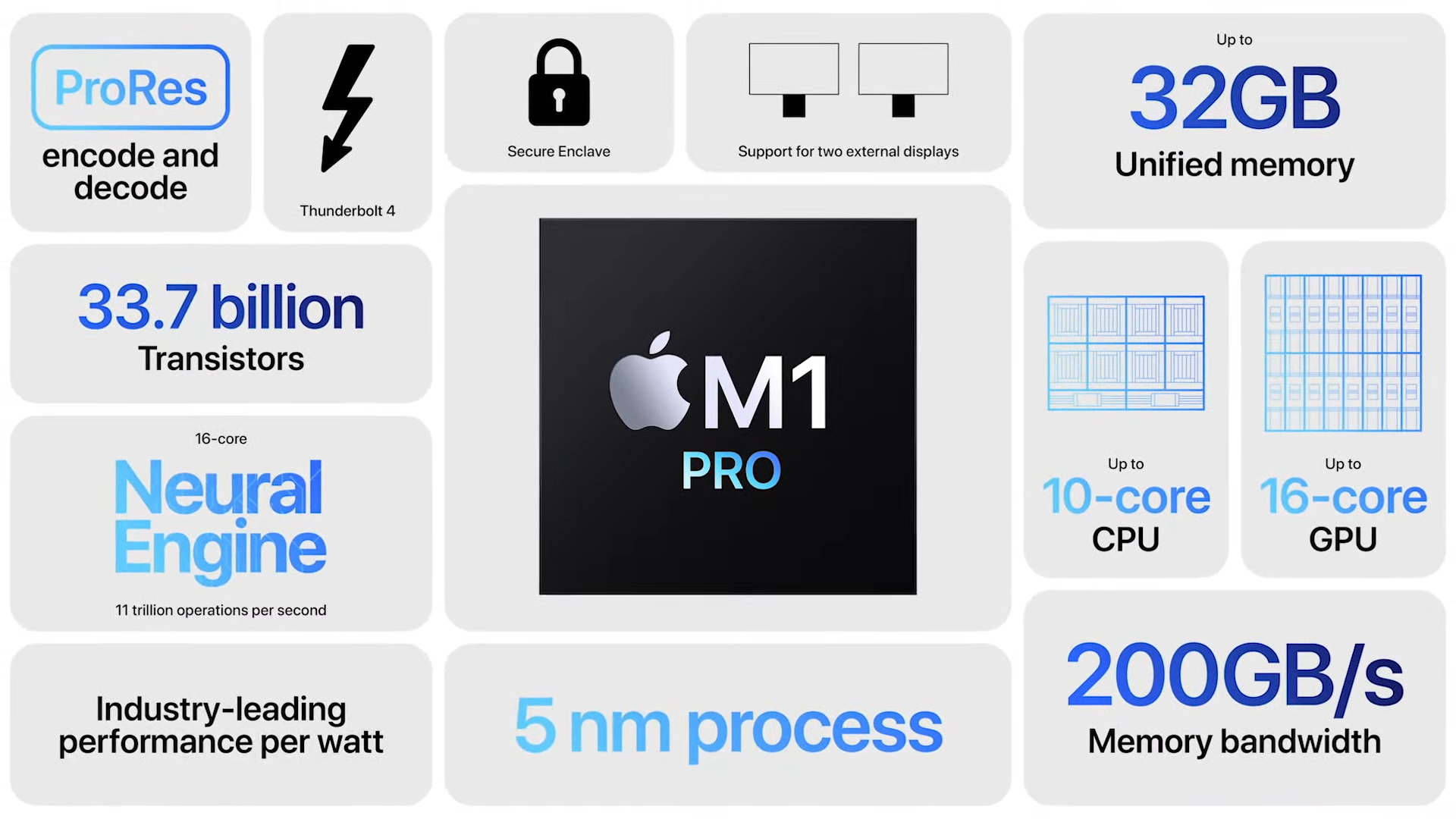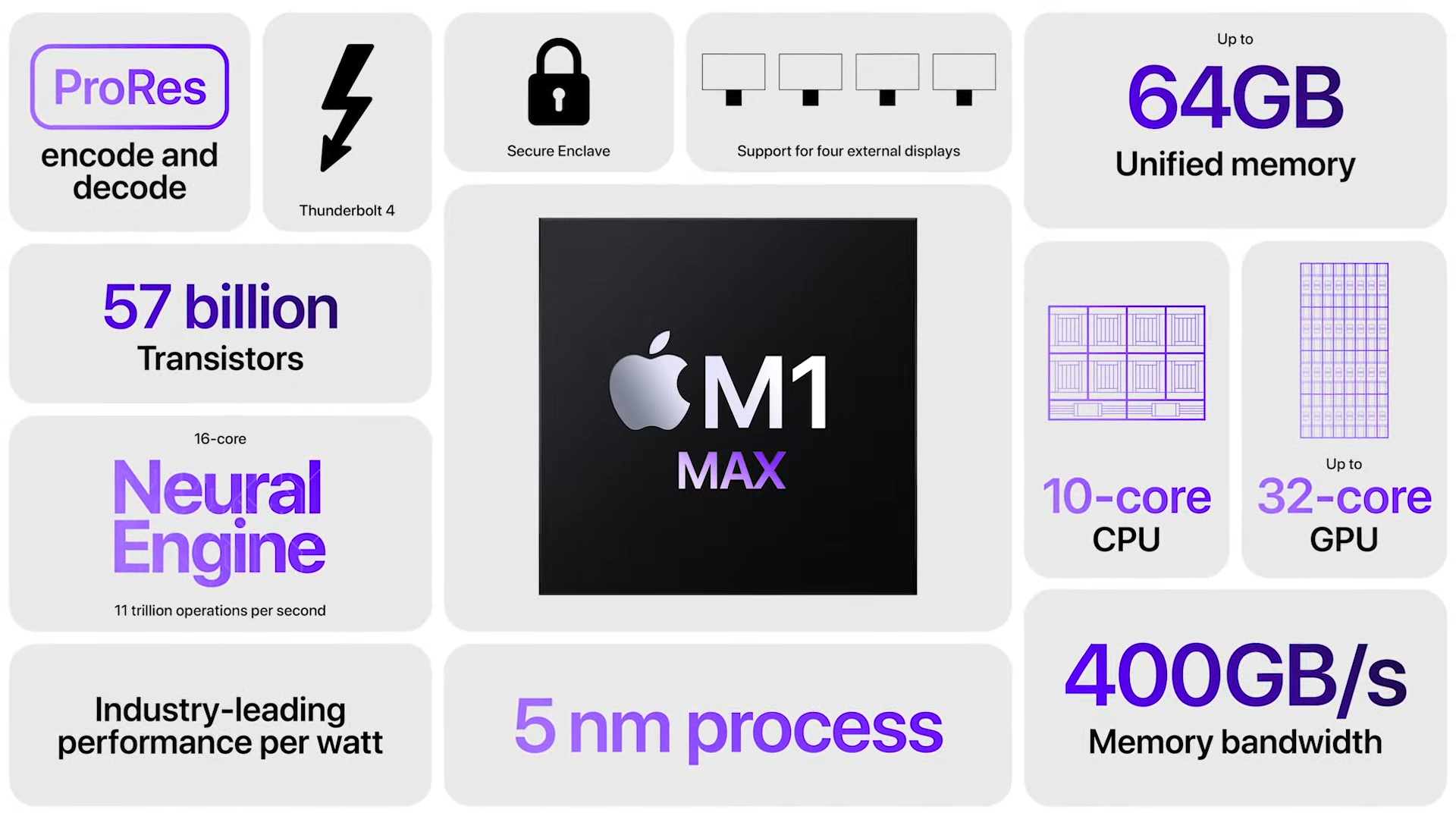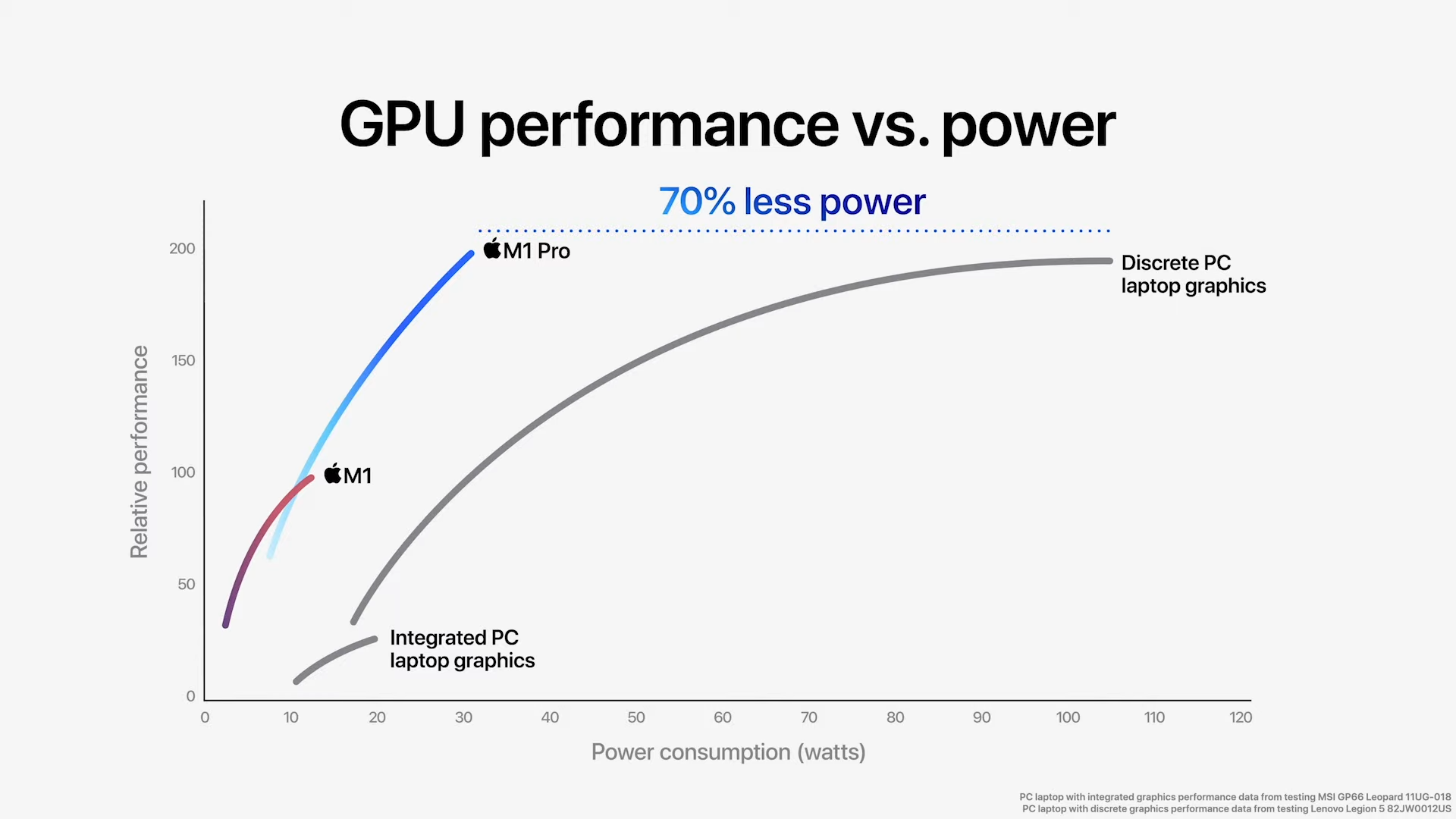Apple M1 Pro and M1 Max announced — Apple Silicon takes another huge leap
Apple's M1 just got a huge upgrade with M1 Pro and M1 Max

Apple has revealed the next evolution of the Apple M1 chip that debuted in the MacBook Pro 13-inch and MacBook Air last year and as rumored both variants of the M1X deliver a considerable performance boost over the already formidable M1.
While the focus with the Apple M1 seemed to be a remarkable blend of power and efficiency, the M1X is much more willing to throw off that balance and tip the scales in favor of raw power when needed.
- Apple October event live blog: M1X MacBook Pro, AirPods 3 and more
- Apple iPad mini 6 review (2021)
- Where to buy the 16-inch MacBook Pro — pre-orders start today
Just as the rumors had suggested the M1X comes in two variants, the Apple M1 Pro and the Apple M1 Max. Both feature an identical 10 CPU core arrangement with eight performance cores and two efficiency cores. The difference comes in the graphics cores where the M1 Pro offers up to 16 GPU cores versus up to 32GPU cores in the M1 Max.

Apple M1 Pro
Apple boasts that the M1 Pro is up to 70% faster than the original M1, which as you will no doubt remember blew us away with its performance in the MacBook Air and 13-inch MacBook Pro last year.
The M1 Pro will top out at 32GB of RAM, a 10-core CPU and a 16-core GPU. Like the A15 Bionic in the iPhone 13, Apple is also pushing the 16-core Neural Engine in the M1 Pro, able to carry out 11 trillion operations per second.
Support for Thunderbolt 4 is still present along with the ability to output to two external displays. Creators will appreciate the support for ProRes encoding and decoding.

Apple M1 Max
Apple M1 Max turns everything up on the M1 Pro. All M1 Max processors feature 10 CPU cores and up to 32 GPU cores. It allows you to bump your RAM up to 64GB. It does share the same 16-core Neural Engine as the M1 Pro along with support for Thunderbolt 4 and ProRes encoding and decoding.
Sign up to receive The Snapshot, a free special dispatch from Laptop Mag, in your inbox.
Other advantages over the M1 Pro are support for up to four external displays and double the memory bandwidth at 400GB/s.

Apple claims that this new CPU is capable of 7x the performance of the current PC laptops from competitors. And lest you think it is all about power and no efficiency, Apple also claims that it uses 40% less power to deliver this performance.
Every app from Apple is already optimized for Apple M1 Pro and Apple M1 Max, but with Rosetta, any previous macOS app is also compatible with the new processors.
Developing...
Sean Riley has been covering tech professionally for over a decade now. Most of that time was as a freelancer covering varied topics including phones, wearables, tablets, smart home devices, laptops, AR, VR, mobile payments, fintech, and more. Sean is the resident mobile expert at Laptop Mag, specializing in phones and wearables, you'll find plenty of news, reviews, how-to, and opinion pieces on these subjects from him here. But Laptop Mag has also proven a perfect fit for that broad range of interests with reviews and news on the latest laptops, VR games, and computer accessories along with coverage on everything from NFTs to cybersecurity and more.

